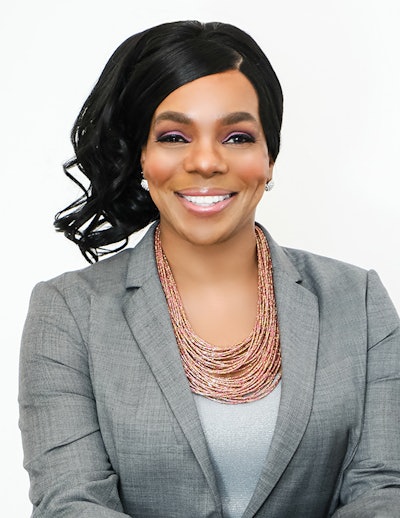 Dr. Nicole Pride
Dr. Nicole PrideAfter less than a year in office, Dr. Nicole Pride, the first female president of West Virginia State University (WVSU) resigned from her post effective immediately. More than half of Pride’s cabinet members recently called on WVSU’s Board of Governors to fire her amid allegations of a hostile work environment under her leadership.
In an almost five-hour meeting on Friday afternoon, the Board of the historically Black university voted unanimously to accept Pride’s resignation letter. According to a statement from the Board, WVSU’s vice president and chief of staff, Ericke S. Cage, will have operational control of the university “pending the appointment of an interim president.” The Board voted that Cage cannot hire, fire, or change the employment terms for university personnel or execute contracts without their prior consent.
“I appreciate the faith the Board of Governors has placed in me, and I will work closely with fellow members of the senior administration to carry out the day-to-day operations of West Virginia State University and do what is in the best interests of our students, faculty, and staff,” said Cage in the statement.
Cage and Pride did not respond to interview requests.
 Ericke S. Cage
Ericke S. CageThis swift presidential resignation came over a week after an anonymous source leaked to the Charleston Gazette-Mail a letter of “no confidence” in Pride signed by most of her cabinet members and addressed to the Board. Signatories included WVSU’s then-provost, general counsel, and lead financial official, as well as the vice president for university advancement and the vice president for research and public service.
The letter urged the Board to remove Pride “to allow for an investigation,” alleging specific incidents of inappropriate behavior directed toward colleagues. “Condescending and abusive dialogue are common in exchanges with Dr. Pride,” wrote the signatories in the Gazette-Mail’s report.
In the wake of Pride’s resignation, many WVSU alumni have expressed alarm and concern about the future of the institution.
“I didn’t know much about Pride, and I didn’t know she had resigned, that it was going that far,” said Everett L. Person, the Eastern Region Director of WVSU’s National Alumni Association and a 1968 graduate of the school. “I’m surprised and I’m concerned, because school starts in August and as far as I know, we don’t have a president.”
Person noted that without as much funding as some of the more well-known, well-endowed HBCUs, WVSU has faced challenges in attracting top talent.
“It’s all about resources,” he said. “It’s all about getting quality professors and administrators willing to work where the salaries may not be as high as at other places, even for a president. And it’s about developing a culture within WVSU over time of strong student-faculty relationships and student-student relationships.”
Dr. Robert T. Palmer, an associate professor and department chair of educational leadership and policy studies at Howard University, agrees that a president’s departure after such a short time is troubling to a university. Palmer researches HBCUs and other minority-serving institutions.
“When you have a president for only less than a year, that poses significant challenges to the stability of the institution,” he said. “A new president may want to change the culture and implement a vision, for example, but that doesn’t happen overnight, certainly not in the first year. You may be there three years before you start to see changes. With less than a year, you don’t have a chance to bring that vision to life or course-correct a previous administration.”
For Palmer, Pride’s alleged leadership problems stress the importance of the need for institutions to hire college presidents with more intangible skills.
“If you don’t have the support of your team, it will be very difficult to realize your vision,” he said. “There were concerns from what I read around how this person treated the executive leadership. On paper, maybe this person seemed to have the characteristics of a president. But we need to look beyond what’s on paper. An effective president must have a personality that will make people want to come to that institution to work with you.”
Palmer cautioned, however, against generalizing WVSU’s situation to what he termed a harmful “leadership crisis narrative” among HBCUs. While the retention rate of presidents at HBCUs is lower than that of the national average among colleges and universities at-large, he said that progress among HBCU leaders can often be overlooked.
“Of course, there are issues to be aware of with HBCUs, but we also need to recognize there are presidents doing phenomenal work out there,” said Palmer, offering such examples as Spelman College’s Dr. Mary Schmidt Campbell. “We need to be equally mindful of the challenges as well as successes among HBCUs, to not paint a broad brush of institutions on the brink.”
Looking ahead, Person said that he hopes that the next president of WVSU will take the institution to higher heights.
“We need someone with a vision that may take five or ten years,” said Person. “Maybe a president who says, ‘I want to have a law school at WVSU.’ That’s not too far fetched. And that could help. I think WVSU has great potential, and I’d like to see it grow.”
Rebecca Kelliher can be reached at [email protected]


















